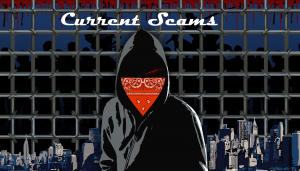Con artists registered more than 2,449 fake Zoom-related internet domains in the early months of the pandemic, just so they could send out zoom phishing email that look like they’re from the popular videoconferencing website, according to the Better Business Bureau.
The scheme: “You receive an email, text or social media message with the Zoom logo, telling you to click on a link because your account is suspended or you missed a meeting,” says Katherine Hutt, national spokesperson for the BBB. “Clicking can allow criminals to download malicious software onto your computer, access your personal information to use for identity theft, or search for passwords to hack into your other accounts.”
How to avoid: Never click on links in unsolicited emails, texts or social media messages, Hutt says. If you think there is a problem with your account, visit Zoom’s real website at Zoom.us and follow the steps for customer support.
What to Do: If you see unrecognized charges on your Zoom account, have noticed services that you didn’t buy, or want to report any other fraudulent activity on your existing Zoom account, you can submit a request to Zoom’s Trust & Safety team. Zoom’s Trust & Safety team reviews each request and takes action when fraudulent activity is verified.
Note: If you receive a zoom phishing email and believe your account was hacked, learn how to report a compromised account. If you need to change the email address associated with your account, learn how to update your email with Zoom.
To report fraud on a Zoom account – click HERE









